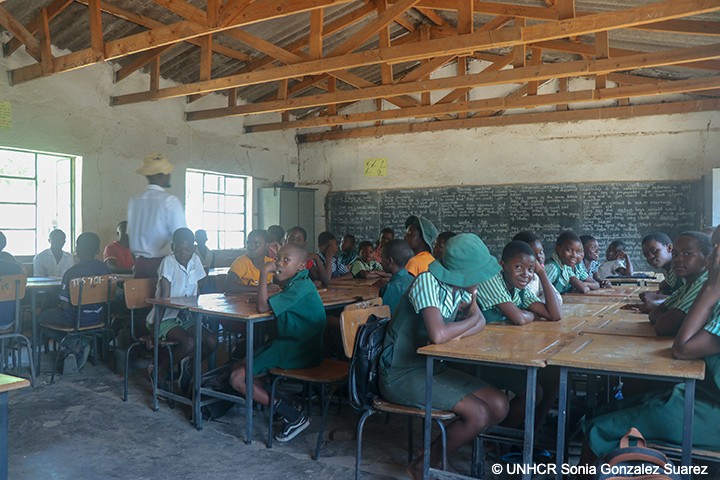-portada.jpg)
Promoting primary educationwith UNHCR
Fundación Occident collaborates with UNHCR in its Primary Impact project, which aims to improve access to education for refugee children by means of:
- Improving access to primary education
- Training for teachers and improvements in educational infrastructures
- Psychosocial support for refugees
For 3 years (2024-2026), Fundación Occident has supported the development of the UNHCR project in Zimbabwe, a country that has more than 23,500 refugees, mostly in the Tongogara camp. Despite the difficulties existing such as limited access to work or lack of free mobility, the government collaborates with UNHCR to guarantee its protection and find sustainable solutions.
Our contribution will allow 400 refugee children from the Tongogara camp to take part, mostly from countries in conflict, such as the Democratic Republic of the Congo, Burundi and Somalia.
In addition, initiatives such as empowerment clubs for girls and mental health programmes for children will also be implemented. Education is key to child protection, and it encourages integration, economic development and equity in vulnerable communities such as the one in the Tongogara refugee camp.
Improvement in school registration of refugee children
In an international context where around half of the world's refugee children are not in school, the Primary Impact programme in Zimbabwe aims to respond to the specific reality of this country, improve primary education in refugee children and provide schooling to children who have had to flee conflicts in the Democratic Republic of the Congo, Rwanda, Burundi and Mozambique, among others, and are outside the education system; and retain those who are already attending school, so that they do not abandon it due to the difficulties existing. For example, in the case of girls, the impossibility of purchasing menstrual hygiene kits leads to absenteeism and school abandonment.
Thanks to the collaboration of Fundación Occident in this UNHCR programme, not only will the children be provided with uniforms and school material or hygiene kits, but also psychosocial and mental health support will be provided to those with special needs and training for teachers to learn tools to teach in an environment as complex as a refugee camp.

.jpg)